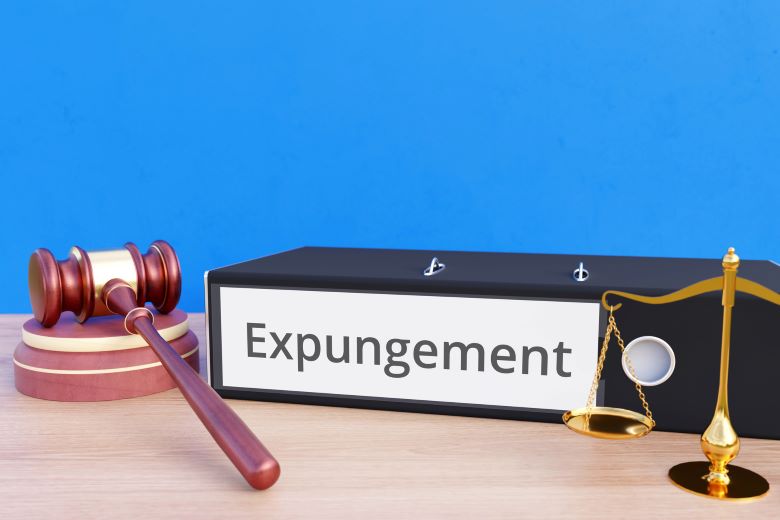
In today’s society, the shadow of a past mistake can stretch far into an individual’s future, often hindering opportunities for employment, education, and housing. Fortunately, the legal process of expungement offers a chance to turn the page, providing a clean slate that can dramatically alter one’s trajectory.
That said, this guide will provide a thorough exploration of who qualifies for expungement, the benefits it entails, and the transformative impact it can have on one’s life, charting a course towards renewed opportunities and redemption.
What Is Expungement?
Expungement is a legal process through which a person’s criminal record can be erased or sealed from public view. This process effectively removes or hides convictions, arrests, or proceedings from the criminal record as if they never occurred, at least in the eyes of the law applicable to most public inquiries. With the assistance of an expungement attorney, a person typically gains the legal right not to disclose their past criminal convictions in most situations, such as when applying for a job or renting a house.
Who Is Eligible For Expungement?
Eligibility for expungement largely depends on the laws of the jurisdiction in which the offense was committed, as well as the specifics of the offense itself. However, there are general criteria that often determine eligibility for expungement across various legal systems:
- Nature of the Offense: Typically, minor offenses, misdemeanors, and sometimes non-violent felonies can be expunged. More serious crimes, especially violent felonies and sexual offenses are often excluded from expungement.
- Completion of Sentence: Individuals usually must have completed all parts of their sentence, including probation, parole, and paying any fines or restitution, before they can apply for expungement.
- Waiting Period: There’s often a mandatory waiting period after completing the sentence before one can apply for expungement. This period varies but is typically between one to ten years, depending on the offense and the law.
- Criminal History: Eligibility can depend on an individual’s criminal history. First-time offenders are more likely to qualify for expungement compared to those with multiple convictions.
- Subsequent Offenses: People who have not committed further crimes during the waiting period are generally viewed more favorably in the expungement process.
- Behavior and Character: Some jurisdictions require applicants to demonstrate good character or rehabilitation, which might include character references or evidence of community service.
- Specific Provisions or Exceptions: Certain jurisdictions have specific provisions or exceptions for expungement. For example, some places offer expungement for arrests that didn’t lead to conviction, juvenile offenses, or crimes committed under specific circumstances like human trafficking.
It’s important for individuals considering expungement to consult with an attorney in Wendell or any legal professional in their jurisdiction because laws vary widely, and the process can be complex.
Importance Of Expungement
Expungement matters for several profound reasons, impacting individuals and society. Here’s why this legal process is so significant:
- Second Chances
At its core, expungement is about affording individuals a second chance. It acknowledges the capacity for growth and change, asserting that past mistakes should not indefinitely shadow one’s future, especially after fulfilling the consequences of those actions.
The possibility of starting anew not only empowers individuals to move beyond their past but also reinforces the societal belief in rehabilitation over perpetual punishment. This chance at a new beginning can dramatically alter the course of lives, fostering personal growth and societal integration.
- Employment Opportunities
The impact of a criminal record on employment prospects is well-documented and substantial. Background checks have become a standard part of the hiring process, often leading to the immediate exclusion of individuals with past convictions.
By clearing these records, expungement unlocks doors to employment that were previously closed, enabling individuals to earn a living, support their families, and contribute to economic growth. This increased access to job opportunities is a cornerstone of rebuilding lives and breaking cycles of poverty and crime.
- Education and Housing
Educational institutions and housing providers frequently screen for criminal histories, which can disqualify individuals from opportunities that are critical for personal development and stability. Removing these barriers opens pathways to higher education and secure housing, contributing to a more equitable and just society where one’s background does not predetermine their future.
- Social Stigma
The social stigma attached to a criminal record can isolate individuals, hinder relationships, and limit participation in community and civic life. Expungement acts as a powerful tool in breaking down these barriers, restoring individuals’ dignity, and fostering inclusivity. By removing the label of a criminal record, expungement allows individuals to redefine themselves on their terms, free from the prejudices of their past actions.
- Reducing Recidivism
One of the most compelling arguments for expungement is its role in reducing recidivism. By eliminating obstacles to employment, education, and housing, expungement directly contributes to lowering the likelihood of reoffending. This creates a positive feedback loop: as individuals gain access to the resources and opportunities needed to build a stable life, they are less likely to return to criminal activity, benefiting both the individuals involved and society at large.
- Mental Health and Self-Esteem
The psychological impact of carrying a criminal record cannot be overstated. The stress and shame associated with a record can affect mental health and self-esteem. Expungement can provide psychological relief and a sense of closure, enabling individuals to look forward with confidence.
- Justice and Equity
The criminal justice system disproportionately affects marginalized communities, particularly in terms of arrests, convictions, and sentencing. Expungement offers a tool to address some of these disparities, providing a pathway to mitigate the long-term impacts of systemic inequalities.
Conclusion
This journey into who qualifies for expungement and why underscores the principle that redemption is not only possible but also valuable. It affirms that society benefits when individuals are given the chance to erase the marks of past misdemeanors and forge ahead with renewed purpose.


